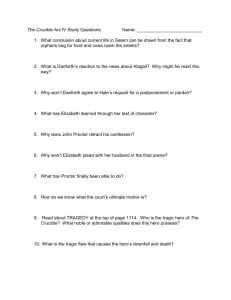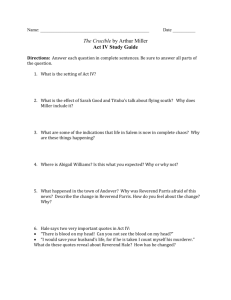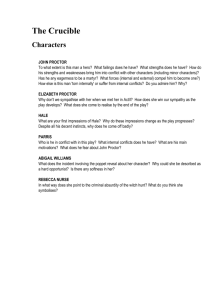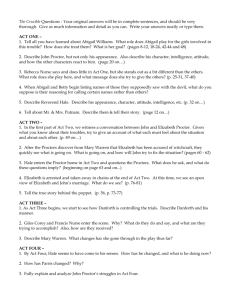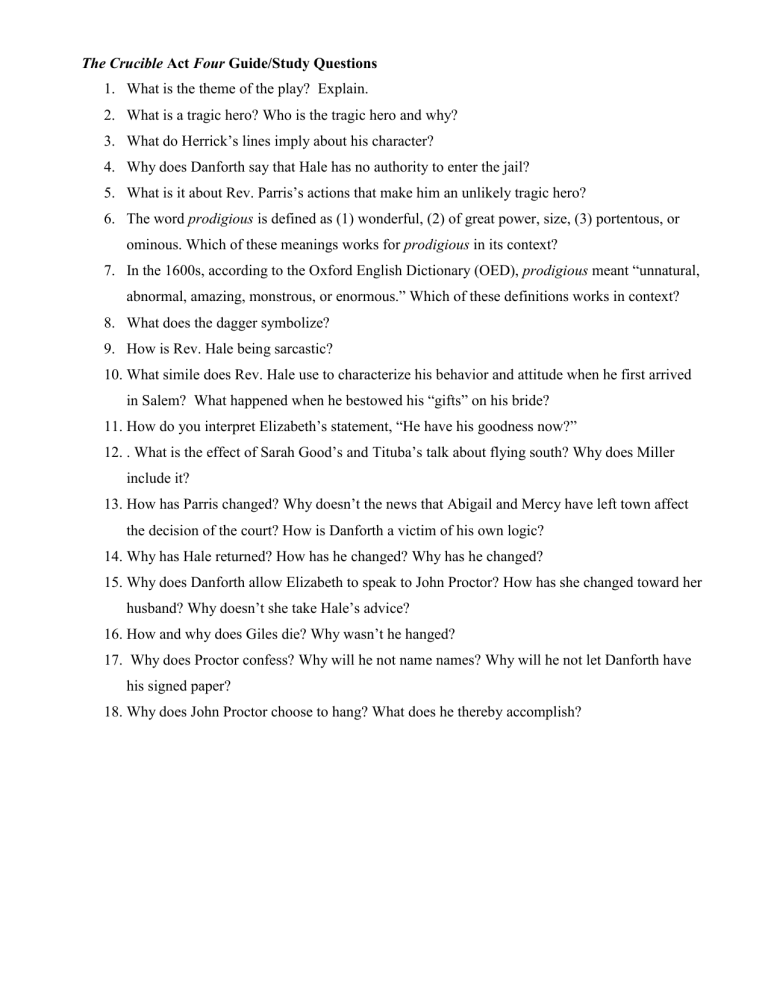
The Crucible Act Four Guide/Study Questions 1. What is the theme of the play? Explain. 2. What is a tragic hero? Who is the tragic hero and why? 3. What do Herrick’s lines imply about his character? 4. Why does Danforth say that Hale has no authority to enter the jail? 5. What is it about Rev. Parris’s actions that make him an unlikely tragic hero? 6. The word prodigious is defined as (1) wonderful, (2) of great power, size, (3) portentous, or ominous. Which of these meanings works for prodigious in its context? 7. In the 1600s, according to the Oxford English Dictionary (OED), prodigious meant “unnatural, abnormal, amazing, monstrous, or enormous.” Which of these definitions works in context? 8. What does the dagger symbolize? 9. How is Rev. Hale being sarcastic? 10. What simile does Rev. Hale use to characterize his behavior and attitude when he first arrived in Salem? What happened when he bestowed his “gifts” on his bride? 11. How do you interpret Elizabeth’s statement, “He have his goodness now?” 12. . What is the effect of Sarah Good’s and Tituba’s talk about flying south? Why does Miller include it? 13. How has Parris changed? Why doesn’t the news that Abigail and Mercy have left town affect the decision of the court? How is Danforth a victim of his own logic? 14. Why has Hale returned? How has he changed? Why has he changed? 15. Why does Danforth allow Elizabeth to speak to John Proctor? How has she changed toward her husband? Why doesn’t she take Hale’s advice? 16. How and why does Giles die? Why wasn’t he hanged? 17. Why does Proctor confess? Why will he not name names? Why will he not let Danforth have his signed paper? 18. Why does John Proctor choose to hang? What does he thereby accomplish?
